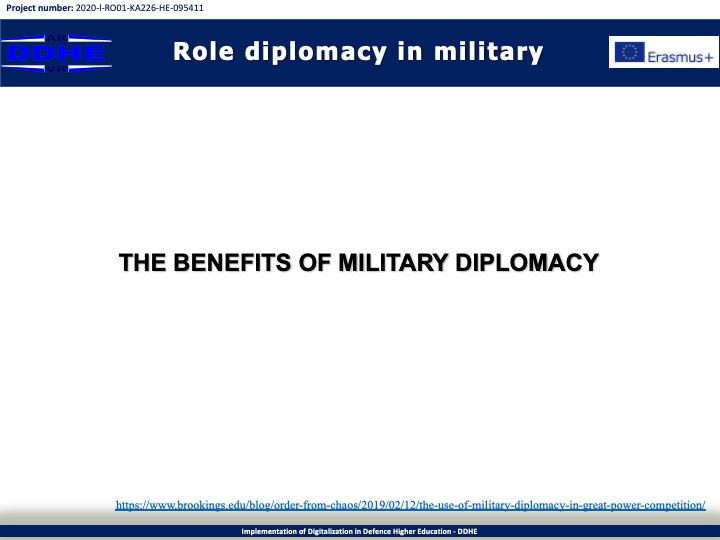
The benefits of military diplomacy
Foundational to this plan would be a strong commitment to economic investment in the future of disparate regions—but especially Latin America and Africa given their direct relevance to American security—the use of NATO-like organizations by the region, and employment of our military to enhance partnerships within those regions.
Within the main elements of national power (diplomacy, informational, military, and economic, or DIME), the military is often considered the last resort. However, the U.S. military has been a key player in, for instance, the spread of democracy, building partner countries’ strength through military-to-military relationships (including in the form of bi- and trilateral exercises to support standing Operation Plans, NATO, the United Nations, and Theater Security Cooperation), personnel exchange, and humanitarian assistance operations. Through these efforts, among others, the U.S. military helps to carry out the diplomatic mission of the United States (military diplomacy paved the way for NATO, the European Union, and the World Trade Organization, for instance). When military units participate in bilateral or multilateral exercises with other countries, for example, the purpose is several-fold: The interaction increases interoperability between the militaries, provides for cultural exchange and understanding, and offers an opportunity to expand each nation’s capabilities while exercising potential contingencies. The importance of military diplomacy in foreign engagement is to build dialogue that may facilitate further communication and, during a crisis, avoid confusion between cultures.
Moreover, in places where the U.S. military has maintained a long-term presence (e.g. Japan, South Korea, Germany), we see that military interoperability enhances regions economically—directly through commercial contracting and the resulting employment, servicemember contributions through commerce, and in some cases, contributions of military gear and equipment through foreign military sales or otherwise.
The resulting “military diplomacy,” also referred to as “defense diplomacy,” “soft power,” “military public diplomacy,” and “strategic communication,” allows the military to have a direct impact on foreign policy through other means. Although not diplomacy in the traditional sense of a State Department mission, military relationships between countries build a foundation on which further connections between nations are developed.
Treść jest rozpowszechniana na licencji Pewne Prawa Zastrzeżone Uznanie Autorstwa Na Tych Samych Warunkach 4.0